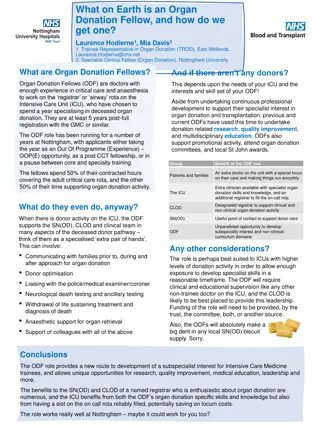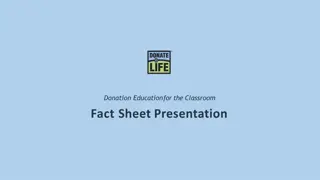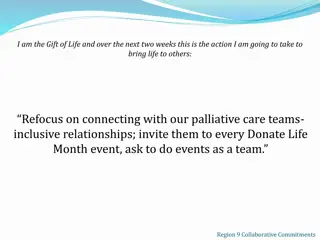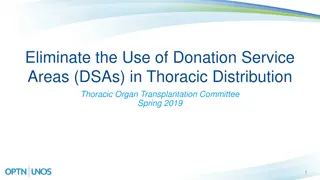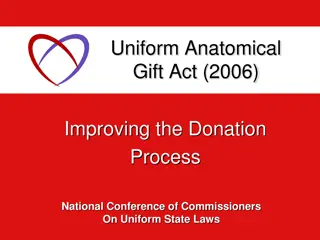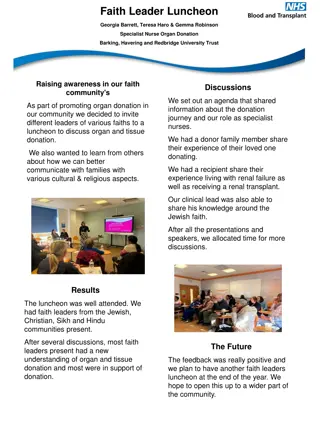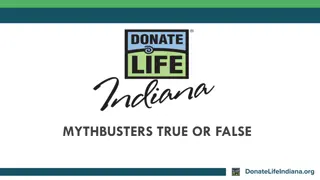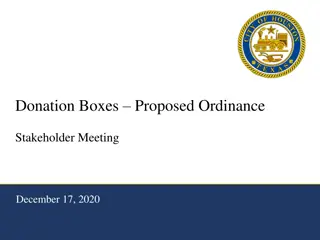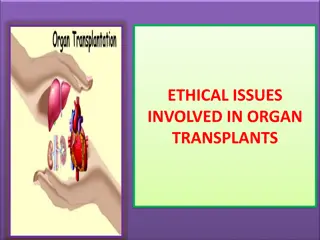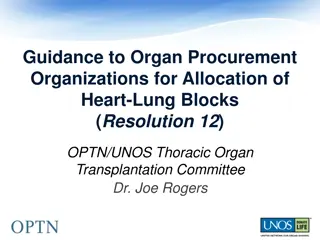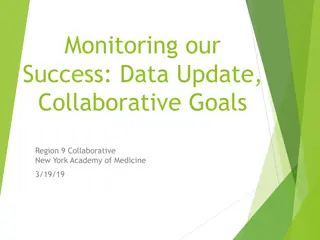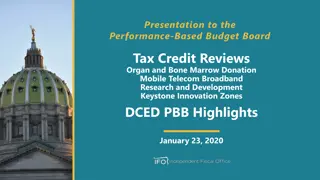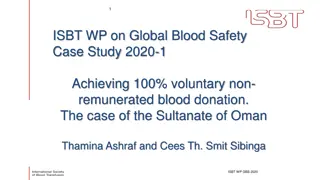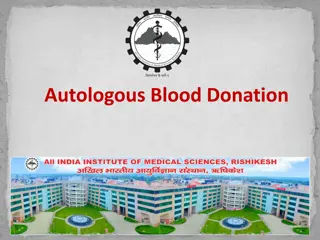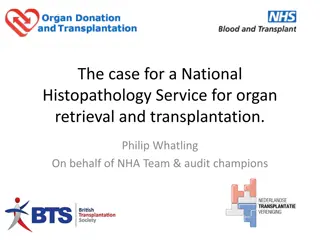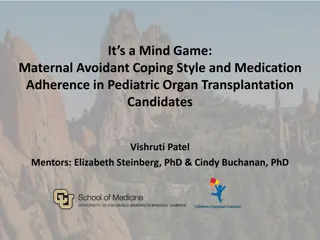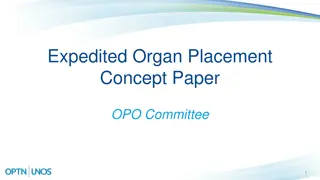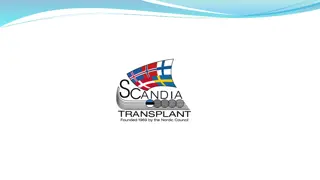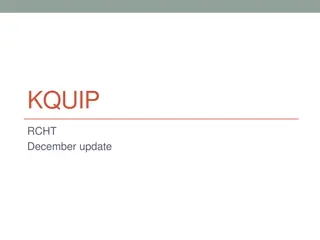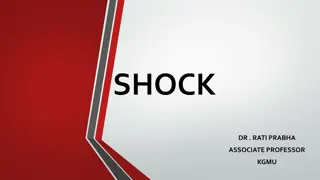Organ Donation Awareness and Education Activities
Explore the importance of organ donation through engaging activities, such as quizzes on organ and tissue donation facts and myths. Learn about the various organs and tissues that can be donated, the significance of registering on the NHS Organ Donor Register, and the impact of organ donation in saving lives. Gain insights on breaking misconceptions and starting discussions about organ and tissue donation decisions. Understand the freedom of personal choice in organ donation and the importance of sharing that decision with loved ones.
Download Presentation

Please find below an Image/Link to download the presentation.
The content on the website is provided AS IS for your information and personal use only. It may not be sold, licensed, or shared on other websites without obtaining consent from the author. Download presentation by click this link. If you encounter any issues during the download, it is possible that the publisher has removed the file from their server.
E N D
Presentation Transcript
Lesson outcomes To be able to describe how organ donation saves and improves lives To be able to explain some of the reasons why people decide to become organ and tissue donors To understand why it is important to join the NHS Organ Donor Register To understand how to talk to people about organ and tissue donation To understand what options about donating they must consider under the system in Wales To understand the decision to donate is their own, and the importance of sharing that decision
Activity 1: True or false organ and tissue donation quiz What do you know? Statement 1. The kidney, liver and heart are the only organs that can be donated. 2. Most people would consider donating their organs but few have told their families. 3. Around 6,500 people in the UK are in need of an organ transplant. 4. Having a medical condition prevents you from becoming an organ or tissue donor. 5. On average three people die every week in need of a transplant. True False
Activity 1: True or false organ and tissue donation quiz Statement 6. Age is a barrier to organ donation. 7. You need to be registered on the NHS Organ Donor Register to be a donor. 8. A child s donated organs go to a child recipient. 9. An organ donor can save one life. 10. All major religions in the UK support the principles of organ and tissue donation. 11. People who wear glasses can t donate their corneas. True False
Activity 1: True or false organ and tissue donation quiz True False Reason 1. The kidney, liver and heart are the only organs that can be donated. 2. Most people would consider donating their organs but few have told their families. 3. Around 6,500 people in the UK are in need of an organ transplant. Statement The organs that can be donated include kidney, pancreas, liver, heart, lungs and small bowel and tissues such as corneas, heart valves, skin and bone. More than 23 million people have registered on the NHS Organ Donor Register. However, people often do not talk to their families about their decision. There are currently around 6,500 people in the UK on the transplant waiting list but many more are in need of an organ transplant.
Activity 1: True or false organ and tissue donation quiz Statement 4. Having a medical condition prevents you from becoming an organ or tissue donor. True False Reason Not necessarily. At the time of your death, a qualified health professional responsible for your care will decide whether some or all organs or tissue are suitable for transplantation. On average three people die every day in need of a transplant because there aren t enough organ donors. 5. On average three people die every week in need of a transplant. 6. Age is a barrier to organ donation. There is no age limit for donating. With your or your family s consent, healthcare professionals decide to use your organs and/or tissue based on strict medical criteria, not age, and will determine whether your organs and tissues are suitable for transplantation.
Activity 1: True or false organ and tissue donation quiz Statement 7. You need to be registered on the NHS Organ Donor Register to be a donor. True False Reason You can choose which organs or tissues you would want to donate when joining the NHS Organ Donor Register. But you can also become a donor by letting your friends and family know you want to donate. Alternatively, if you choose to do nothing, you can have your consent deemed once you reach the age of 18. Your family is able to object to donating on your behalf, so it is very important to discuss your decision with your family. A child s donated organs can go to an adult too. 8. A child s donated organs go to a child recipient. 9. An organ donor can save one life. One donor can save or transform up to nine lives.
Activity 1: True or false organ and tissue donation quiz Statement 10. All major religions in the UK support the principles of organ and tissue donation. True False Reason All religious groups in the UK support the principles of organ and tissue donation. However, sometimes a person s faith can stop them from agreeing to donate their organs as they may feel that their religion doesn t allow it. So NHS Blood and Transplant works with faith leaders and communities to raise awareness and build trust and understanding. Most people can become eye donors it doesn t matter if you have poor eye sight, you could still donate your corneas. 11. People who wear glasses can t donate their corneas.
Organ donation in Wales A new law changed organ donation in Wales in 2015 The law explains how permission is given for removing, storing and use of organs for transplant The law changed the default position to make it easier for people to become donors People who definitely do not want to donate can now record their decision by opting out.
What has changed? Wales used to have an opt in system for organ donation so people needed to say before they died that they wanted to donate and/or their families needed to give permission for donation to take place Many people had not discussed their decision with their family before they died So families didn t know what to do and did not allow donation to happen. Now the law allows donation to proceed under certain circumstances unless the person has opted out. The family are not asked to give their permission but are asked if their relative had opted out.
Why did the organ donation system change? There are around 6,500 people waiting for a transplant in the UK. But there is a shortage of organs available On average 3 people die a day in the UK waiting for a transplant 9 out of 10 people in Wales support organ donation. The Welsh Government wanted to make it as easy as possible for people to become donors and reduce the number of people who die waiting for a transplant
How does the system work now? Unless a person has made an organ donation decision, they will be treated as if they have no objection to becoming a donor and their consent will be deemed to have been given You can record your decision on the NHS Organ Donor Register or tell your family Whatever your organ donation decision, it is important that you tell your family.
Whose consent can be deemed? To have your consent deemed you need to: Be over 18 AND Have not recorded an organ donation decision on the Register or by telling your family AND Live in Wales voluntarily for over a year AND Be able to understand organ donation AND Die in Wales. Or if any of these do not apply, then your family would be asked for permission for donation.
What can you donate? You can donate these organs and tissues: Kidneys Heart Liver Lungs Pancreas Small bowel (gut) Corneas (eyes) Skin Bone cartilage Heart valves
Why are more BAME donors needed? People from Black, Asian and Minority Ethnic (BAME) communities are more likely to suffer from health conditions that cause organ failure. So they are more likely to need a transplant. But they are less likely to become an organ donor. Blood and tissue types need to match for a successful transplant. Organs from people of the same ethnic background are more likely to be a close match. Patients from BAME communities can wait up to a year longer for a kidney transplant, because there aren t enough suitable organs.
So what do I need to do? Decide if you want to be an organ donor Tell your family Record your decision on the NHS Organ Donor Register online or by calling 0300 123 23 23. You can change your organ donation decision at any time.
Activity 2: Life stories Discuss why organ and tissue donation is important Task 1: Watch the summary film about Connor by his mum Nadine, and Elen by her daughter Gwenllian, and answer the questions on your activity sheet. Task 2: With a partner, go through the questions and compare your answers. Do you agree or disagree with any of the answers? Task 3: Have either of these stories inspired you? Has anything surprised you? Discuss with your partner.
Activity 2: Life stories Task 1: Watch the summary film about Connor by his mum Nadine and answer the questions on your activity sheet. https://www.youtube.com/watch?v=s4iwisgFrEE
Activity 2: Life stories Discuss why organ and tissue donation is important Task 1: Watch the summary film about Elen by her daughter Gwenllian and answer the questions on your activity sheet. https://www.youtube.com/watch?v=mAH03CRLYME
Activity 2: Life stories Discuss why organ and tissue donation is important Task 1: Watch the summary film about Connor by his mum Nadine, and Elen by her daughter Gwenllian, and answer the questions on your activity sheet. Task 2: With a partner, go through the questions and compare your answers. Do you agree or disagree with any of the answers? Task 3: Has either of these stories inspired you? Has anything surprised you? Discuss with your partner.
Activity 3: Consider how organ and tissue donation can help improve and save lives Your poster should include some of the following keywords: Organ and/or tissue donor organ and/or tissue donation organ and/or tissue recipient transplant waiting list the NHS Organ Donor Register your choice your decision.
Activity 3: Consider how organ and tissue donation can help improve and save lives The poster should address one of the following: Why is organ and tissue donation important? Why do people want to become organ and tissue donors? Why it is important to tell your family of your decision to donate? Why is there a need for more donors from Black, Asian and Minority Ethnic communities? How could we raise awareness of the need for more organs and tissues and encourage more people to become donors?
Activity 3: Consider how organ and tissue donation can help improve and save lives You will be asked to read another group s poster and give constructive feedback. As you read the poster, consider how the poster shows the importance of organ and tissue donation. Also prepare thoughts on how the poster could be improved. Comment on what went well: Does the poster clearly illustrate the importance of organ and tissue donation? Make suggestions about how it could be even better: Could the messages on the poster be more impactful? Share your posters: Can you display your posters in the school or take them home to show your family?
Activity 4: Looking back on the lesson What do you think about organ and tissue donation? Read each statement and give a score from 1 to 5, where 1 means that you strongly agree and 5 means that you strongly disagree. Statement Score I think this topic we covered today is very important. I feel I have better knowledge and understanding on organ and tissue donation. I feel more confident talking to a friend about organ donation. I am more likely to go home and talk to my family about organ and tissue donation. I think the lesson about organ and tissue donation covered the topic in enough detail.
Activity 4: Looking back on the lesson What do you think about organ and tissue donation? Read each statement and give a score from 1 to 5, where 1 means that you strongly agree and 5 means that you strongly disagree. Statement Score Before the lesson I never considered the topic of organ and tissue donation. It is important to save and improve the lives of people needing a transplant. The group activities today encouraged me to talk about organ and tissue donation. I know where I can independently find out more about organ and tissue donation, e.g. websites.


